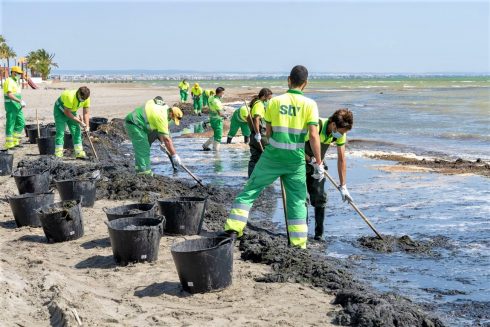By property expert Mark Stucklin
IN the wake of Covid-19 the EU launched the NextGenerationEU recovery plan with €807 billion to help economies recover from the pandemic.
This was aimed especially at the hardest-hit countries like Spain, which suffered a real decline in GDP of 11.2pc in 2020, compared to an EU average of 5.6pc.
“NextGenerationEU is more than a recovery plan – it is a once in a lifetime chance to emerge stronger from the pandemic, transform our economies and societies, and design a Europe that works for everyone….making Europe healthier, greener, and more digital,” explains the official website.
The Spanish government earmarked €15.4 billion for housing projects including renovating Spain’s ageing housing stock to make it more liveable, greener and ‘decarbonised by 2050’.
READ MORE: What will happen to Spain’s property market in 2024?

The government’s stated objectives with this initiative was to ‘advance the renovation of Spain’s housing stock in line with the European Renovation Wave, as well as increase the social housing stock in energy-efficient buildings, helping to activate the sector and generate jobs and activity in the short term’.
When NextGenEU was first announced the Spanish government made such a song and dance of the expected funds you could be forgiven for thinking we already had the money in our pockets. But having observed the Spanish planning system at work for decades I was sceptical.
In my article EU Next Generation billions could benefit the Spanish housing market if spent well I wrote back in December 2021 that ‘there is a good chance that the funds allocated to renovating Spain’s ageing and poorly insulated buildings will not be deployed as efficiently as planned, with disappointing results’.
I was not wrong. A new study commissioned by the Andimac trade association representing distributors of building materials reveals that planning applications for renovations fell 8pc last year, and is expected to shrink by the same amount this year because of the public administration’s failure to ‘channel and deploy the NextGenerationEU funds’.
The Spanish planning system, bureaucracy, and political machinations have turned a tsunami of funds into bottlenecks that have bunged up the system and caused renovations to pucker rather than mushroom like politicians claimed they would.

The NextGen funds were an opportunity to make the Spanish housing stock more energy efficient, as currently 83pc of homes do not meet the minimum ‘green’ requirements that will be in place in 10 years time, without which homes can’t be sold or rented.
Like many ‘green’ policies this will have to be ditched at some point because it is simply unworkable, but for now it is still an official EU objective that Spain should be working on with NextGen funds.
Incompetent administration of NextGenerationEU funds purportedly for upgrading the Spanish housing stock has left it worse off than it would have been without them, whilst the ‘Next Generation’ has been saddled with greater public debt.










